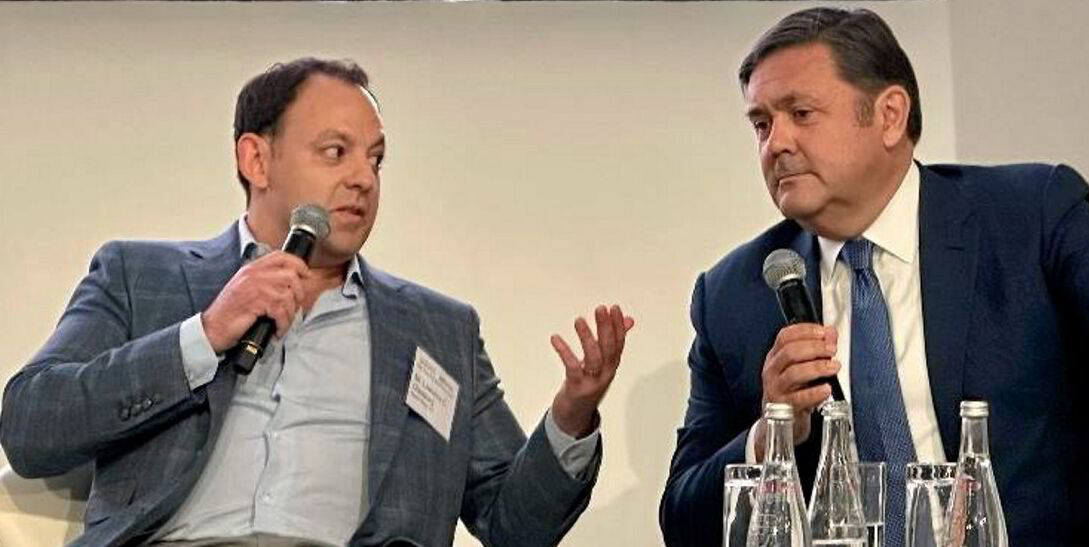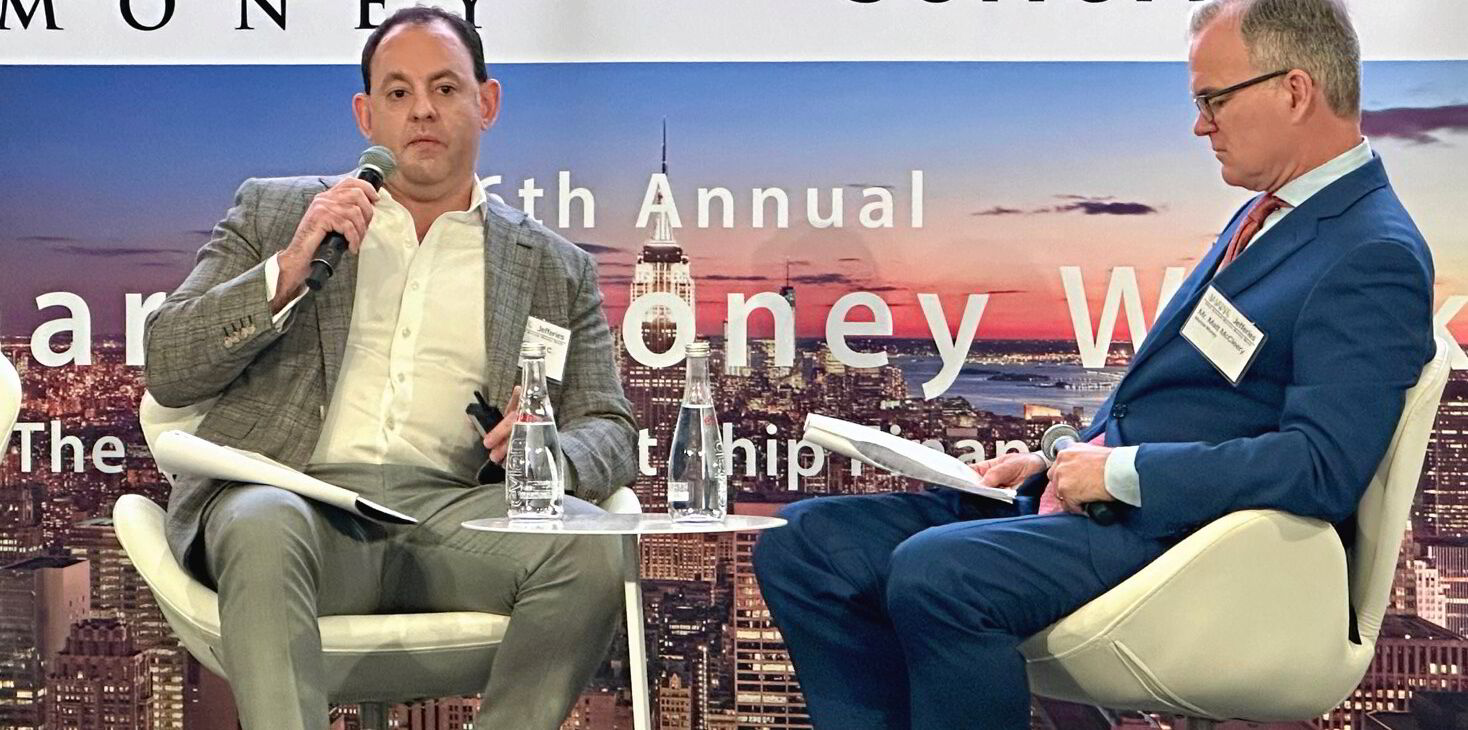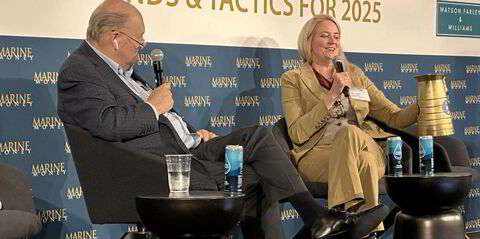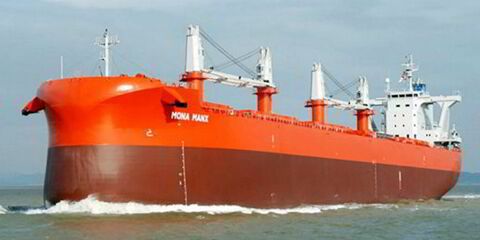It was one of those years when Marine Money Week followed closely after Posidonia in Athens, and this time with the same packed parties and delegate exuberance that tends to flow from an extended bull run in shipping markets.
Call it Posi-lite.
There was even a star turn by Greek shipowner-of-the-moment Evangelos Marinakis, whose on-stage interview with US shipbroking giant Michael Tusiani likely provided the single highlight of the event.
Talking past each other
But the Marine Money events are, of course, about the money. And the theme that struck us as most profound was the conflicting, and even polar-opposite views, on what the US capital markets are for when it comes to shipping issuers.
On the one side was Larry Glassberg, a veteran shipping investment banker for controversial US house Maxim Group.
One year after getting blindsided by critics at the same event, Glassberg was handed the microphone and allowed to launch an unfettered defence of the work he and his bank have performed.
This has mainly involved launching public share offerings — usually packaged with warrants — on behalf of small, mostly Greek owners who otherwise would not have access to a standard public listing in New York.
As a reminder, there has been only one regular-way mainstream shipping IPO in New York since 2015 — the listing of Israeli liner company Zim in January 2021.
A major problem with Maxim’s minnows is that they generally have lost significant share value after floating through further dilutive stock sales, often followed by reverse stock splits so that the process can be repeated.
Unsuspecting retail investors have been burned, shipping figures such as Ridgebury Tankers chief financial officer Hew Crooks and Pyxis Tankers chief executive Eddie Valentis have complained about damage to the industry’s reputation, yet the deals continue.
Glassberg’s address on the conference’s final day showed why.
Not only was the bank unapologetic about the deals, Glassberg lauded them as some of the best in shipping’s history in terms of the valuation obtained for the shipowner.
He also presented a raft of data, including a key point showing that warrants are used in 49.6% of offerings across all industries when a company’s market capitalisation is below $500m.
In short, Glassberg positioned Maxim as the champion of the little guy, helping companies grow when no one else will.
But there was nothing said by the Maxim banker that is going to change minds in the opposition camp.
In their view, a New York listing needs to be earned, not achieved through a backdoor loophole, a direct listing or a spin-off of a few ships from an existing owner.
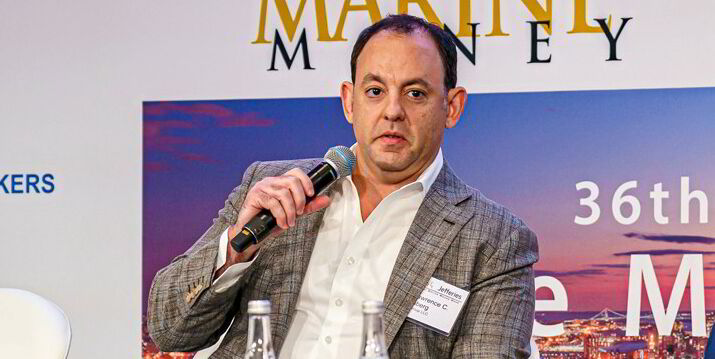
The reasons conventional banks will not touch these listings is that, in their view, these companies simply are not good enough: not big enough, not strong enough in governance, and, perhaps most importantly, not in demand from any significant investor base.
There is a reason, after all, why there has been only one regular IPO in New York in nine years. And at least part of that reason is the bad taste left by deals of the past, complicated by some poor governance practices.
Creating little fee machines — whether for private family management companies or the Maxims — does not further shipping’s cause.
To the more forward-looking, the types of deals Glassberg describes are part of shipping’s past. They reflect its childhood in the public markets at a time when it needs to grow up, faced with challenges that will include the huge capital requirements entailed by the eventual move to green fuels.
Speaking on an investment panel, Star Bulk president Hamish Norton observed — and not for the first time — that with a sector-leading market capitalisation of $2.8bn, the owner is about half the size it needs to be to even just begin looking like a legitimate target for institutional investors.
On the same panel, long-time Deutsche Bank managing director Craig Fuehrer said: “The last thing the world needs is another $300m to $500m shipping company.”
Bearing the Norton and Fuehrer comments in mind, here is a measure of the divide between the two camps and the extent to which they talk past each other.

Glassberg used his appearance to suggest Maxim’s latest success in shipping might come this week as it leads a single-ship company public.
TradeWinds has previously reported that Maxim is helping Ismini Panagiotidi’s Icon Energy, which plans to offer the market an 18-year-old panamax bulker in a deal worth between $5m and $7.5m.
When the deal was mentioned to Fuehrer’s former colleague Amit Mehrotra — himself a proponent of scale in public shipping companies — his response came with tongue firmly in cheek.
“It’s not even a capesize,” he said.
